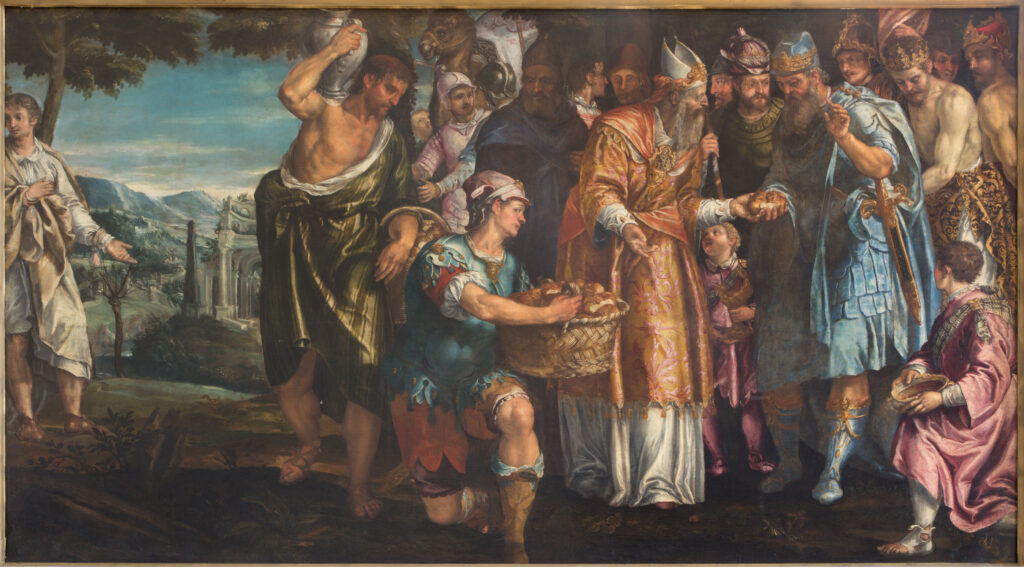Pro-life Priests
I’ve always admired the title of the organization “Priests for Life”—let’s not go into the controversies or scandals—as an ingenious name because it is a fundamentally priestly role to be for life. And what I mean by a “priestly” role here is not specifically Christian, but rather a human one—it is humane to call for an end to the legalized killing of unborn children.
It is human nature to think of some things as taboo, that is, exclusive of ordinary or worldly purposes, available only in a narrow or even supernatural context. Thus, a burial ground may be considered taboo because its use is restricted to the internment of human bodies. A king’s widow may be taboo because, though her husband is gone, she is not sexually available to other men.
Scholars of ancient Hebrew have argued that taboo is the notion behind the word that is transliterated for us as kadosh, and translated in the Old Testament as “holy.” The idea here is that what is kadosh is apart from worldly affairs and available only to God. Early settlers of where Italy now is—even before the Romans—had the same intuition. Oscan and Etruscan, the precursor languages of Latin, gave the Romans the notion of sacer, which is the equivalent of taboo and the root of the English word sacred.

Venice – The Sacrifice of Melchizedek by Parrasio Michieli (1526 – 1578) in church San Francesco della Vigna
So, it’s more than just pious hand-waving when prolifers speak of human life as “sacred.” Indeed the word sacred has a core meaning independent of whatever specific religiosity invokes it. It’s a claim that human life does not belong to the ordinary processes of the world, the “secular.” Just as you don’t have to be religious to recognize the meaning of a “no trespassing” sign, so too you don’t need to be Jewish or Christian to understand and accept that human life is sacred. Whether you are a mother or father, physician or king, while you may have the responsibility to care for human life, you do not “own” it, and you cannot choose to dispose of it as you please.
The humanity revealed in our language doesn’t stop there. The word sacrifice refers to making someone or something holy (“sacri-fice”), meaning that person or thing is set apart from the affairs of this world. “Sacrifice” parallels another pre-Latin word, sacerdos, “one who does holy”—that is, a priest. Romans reserved this word for those whose special appointment allowed them to perform acts that were taboo for others to undertake, such as sacrificing a bull for the welfare of the Roman Republic.
Like holiness more generally, this natural human notion of priesthood finds greater maturity in Hebrew antiquity. Abraham receives a priestly commission from Melchizedek, and passes it on to his sons, the patriarchs. Priesthood rests latent in the Hebrews while they are in Egypt, but is reawakened in Moses—who issues careful instructions about the worship of the one God—and then passed on by his brother Aaron, to his sons specifically and to the Levites more broadly. The priests of ancient Judaism set things aside for God, were permitted in limited ways to handle things set aside for God, and ultimately contributed to making the entire nation holy.
Latent priesthood is also awakened in David and his heirs: “You are a priest forever, after the order of Melchizedek.” Christians believe that Jesus is the perfection of this priesthood, as he made humanity and all of creation holy by his own death on the cross. Saint Peter tells newly baptized Christians that they are “a chosen race, a royal priesthood, a holy nation, God’s own people,” in imitation of Jesus the Christ, in whose name they have been anointed. Christians, like the Roman religious system they displaced, believed they were called by God to be priestly, to hold people and things sacred—that is, to set them apart for God and for God’s purposes.
Prolifers are a priestly people. Not because they are Christians, though of course many are. But because they seek to restore the indelible taboo that human life is sacred. To hold someone sacred is to engage in a priestly act of sacrifice so in that sense prolifers do what people of ancient civilizations would have recognized as holy work. We reject governments and persons who would claim ownership of human life and the right to dispose of it. And we draw a bright line in seeking to invoke the law to forbid the killing of a non-aggressive class of human beings.
God grant that we be effective priests!









